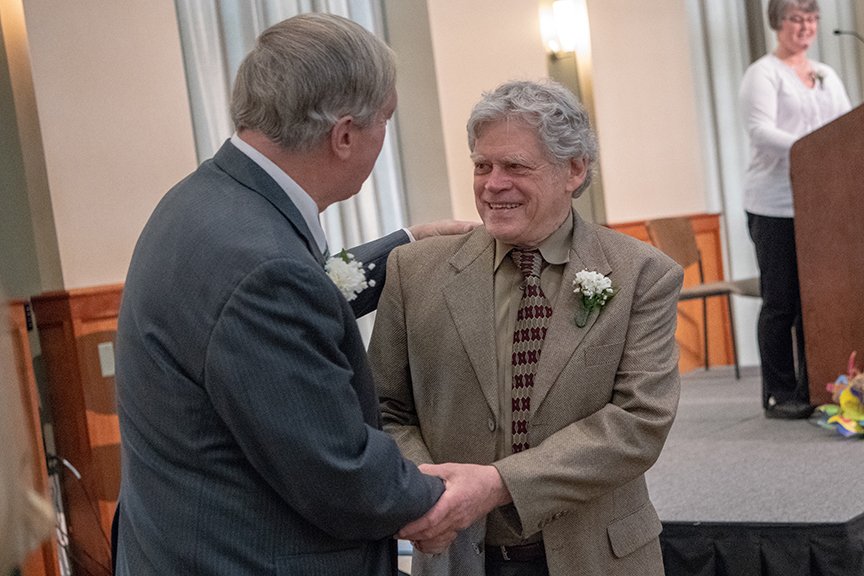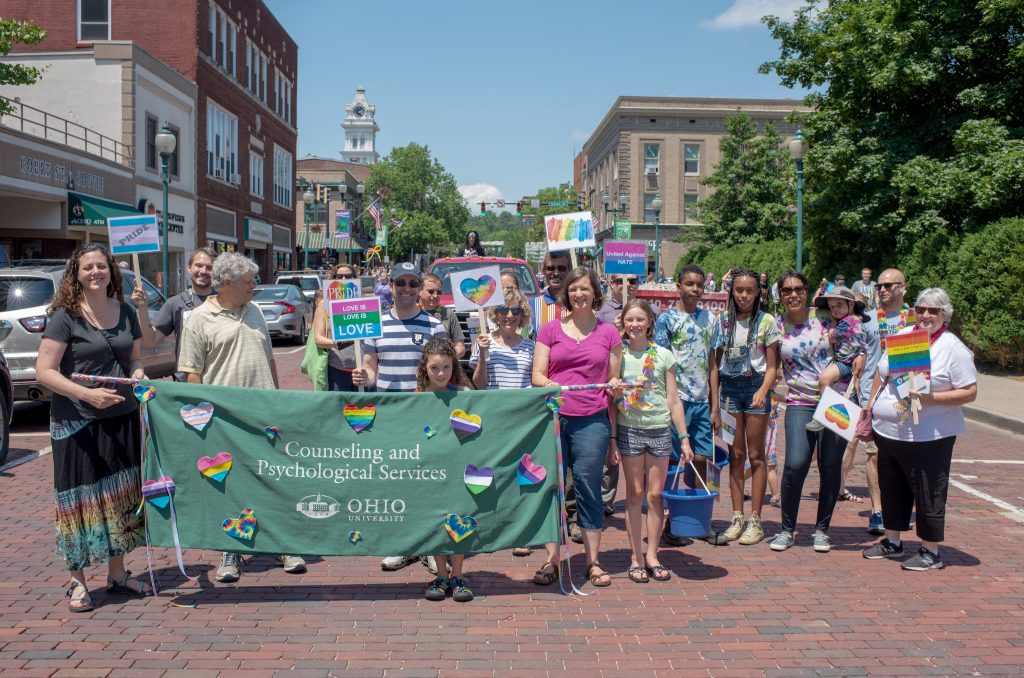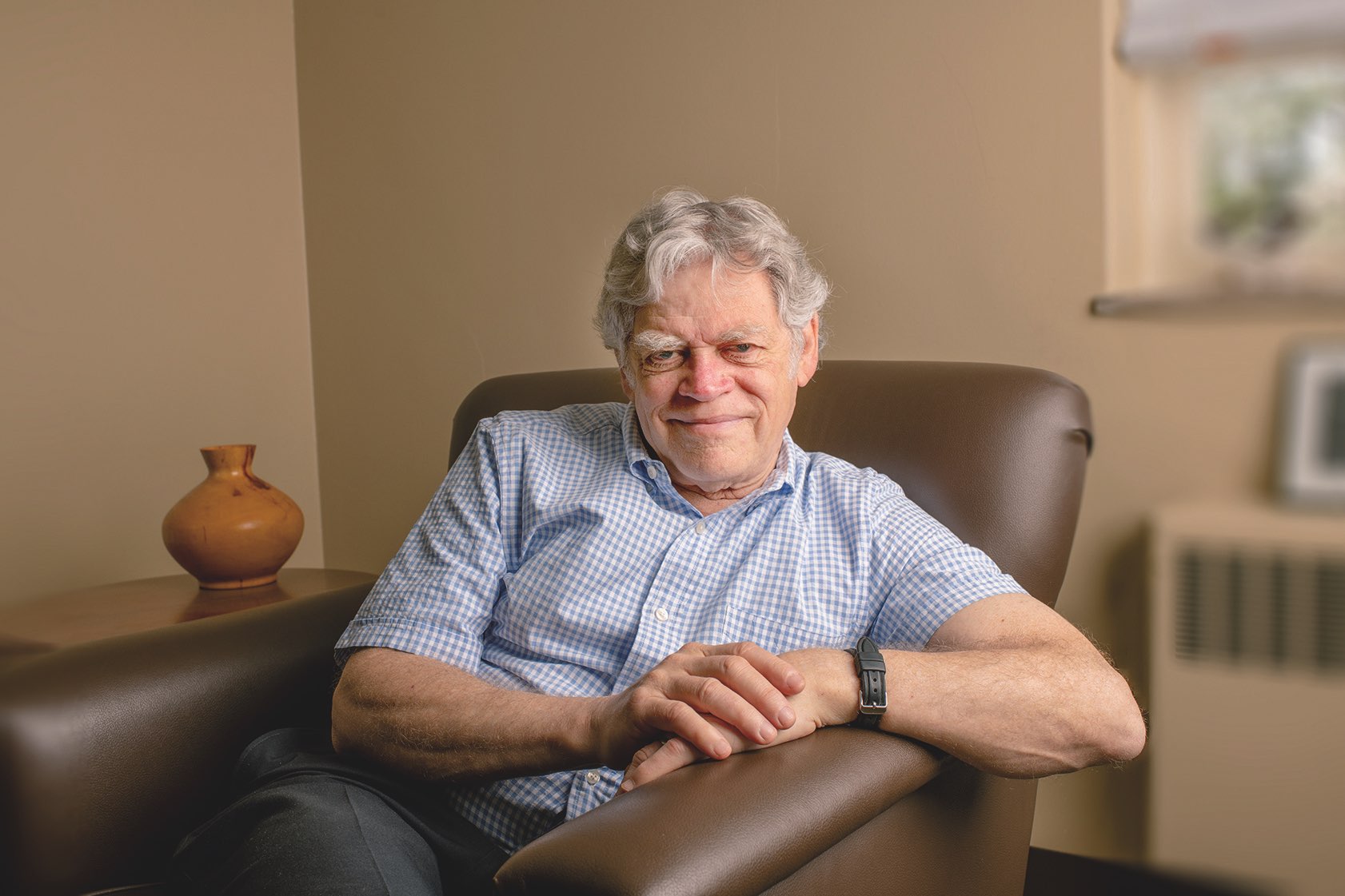
Fred Weiner arrived in Athens in 1967 as a staff psychologist at Ohio University’s burgeoning counseling center. In June, Weiner retired as Counseling & Psychological Services’ (CPS) director after 51 years of service, having witnessed a sea change in higher ed counseling practice.
“When I first took the job here, not every college and university had a counseling center,” Weiner says. “But now, I can’t think of a college and university that doesn’t have one.”
Counseling centers were “outliers” within a university’s student affairs division, Weiner says. As mental health care became more mainstream, centers were asked to care for more students, be available at all hours, consult with individual colleges, and collaborate with other departments.
“None of that would have really been happening 40 years ago,” Weiner says. “I’d just be sitting here seeing people, one after another.”

Fred Weiner (right) is congratulated in April for 51 years of service at OHIO by President Duane Nellis. Photo by Ben Siegel, BSVC ’02
Students seek care for different reasons now, Weiner says. Patients used to struggle with self-confidence. Later, he started seeing more cases of depression. In the last decade, care involves treating anxiety disorders.
“I think that reflects a change in the culture, where life has just gotten so stressful for college-age students,” he says. “Life is far more complicated, far more stressful than it was 30 to 40 years ago.”
The approach to treatment has changed, too. Students would often seek counseling to learn about themselves. Now, Weiner says, counselors apply a “solution-focused approach.”
“I’m not focused on someone’s whole identity anymore,” Weiner says. “I’m focusing on the issues they’re struggling with right now.”
Counselors also treat more at-risk students, Weiner says. It takes its toll.
“I remember my first few years here, I would have maybe two or three people I was seeing at one time who I would really be worried about…[as in] I’d go home and worry about them,” Weiner says. Today, many patients fit that description, he says.
But the CPS staff is a tight-knit, supportive group, Weiner says, which helps keep the work in perspective. When he’s treating a high-risk student, “…I have a bunch of people I respect greatly who I can go to,” he says.
Given this stress, what’s kept him at this work for so long? The love of the job, Weiner says. And for the students who let him into their lives.
“I’ve had a chance…to help students find meaning and success at a critical point in their lives,” he says. “That’s a pretty gratifying thing. I never take that for granted.”

Weiner with Ohio University Counseling and Psychological Services participating in the city’s first Pride parade. Photo by Ben Siegel, BSVC ’02
Feature photograph by Ben Wirtz Siegel, BSVC ’02




